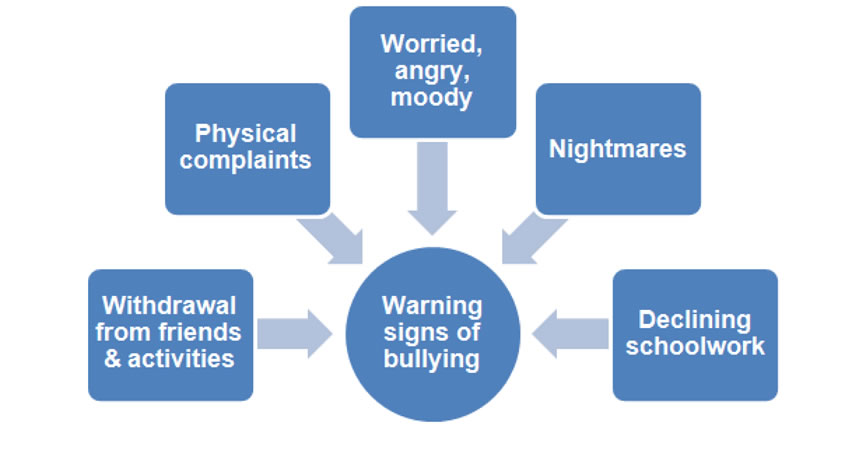Anti Bullying Policy.
Our Values and Principles:
Southgate School is completely opposed to all types of bullying and discrimination. It is entirely contrary to the nurturing values and ethos that are implemented to make the educational experiences of our young people as happy and positive as possible. School will work closely with all stakeholders to reduce bullying or discrimination as much as possible, and to ensure that incidents are dealt with quickly and efficiently.
In managing bullying & discrimination at Southgate School, we recognise that our pupils may face difficulties regarding behaving appropriately to others. Our pupils are behind their peers developmentally. This can impact on their ability to show empathy, can impair theirsocial awareness and understanding, and make it more difficult for them to control their behaviour towards others. Many of our pupils are therefore considered to have social and emotional difficulties. As a special school, we aim to develop the whole child, in terms of their cognition and learning, communication and interaction, social and emotional and physical and sensory needs.
Our School Council Say…”We help each other and stand together against bullying”
Need to know:
- Southgate School will not tolerate any form of bullying or discrimination
- We will always support the victim and educate the bully
- Incidents of bullying will never be waved of or excused as ‘banter’
- Bullying is making someone feel bad on purpose
- If you feel you are being bullied, tell an adult in school or your parent/ carer
- School will always stop bullying by working with the pupils involved
- Parents/ carers must always tell the school if their child reports bullying, discrimination or if they are concerned about their child
- We need to be vigilant and safeguard our pupils from bullying & discrimination (or being bullies) at all times
- Any incidents of bullying & discrimination need to be dealt with immediately by the adult who witnesses it
- Victims of bullying or discrimination are always supported
- We record incidents of bullying & discrimination on CPOMS alongside the actions we take to reduce recurrence
- We follow the school’s guidelines and approach to combat bullying (see ‘Our Approach to Bullying & Discrimination’ below)
- We will work with anyone who is a bully to help them understand why they are behaving this way, and to teach them a better way to get their needs met
Definition of Bullying:
Behaviour by an individual or group, usually repeated over time, that intentionally hurts another individual or group either physically or emotionally. Bullying can involve verbal taunts, name calling, physical injury, damage to property, rumour spreading, shunning or ridicule. It can be manipulative, such as making a pupil do something they should not, or deliberately engineering their discomfort or isolation. It can be done through mobile phones, websites and email (cyberbullying). Some children with SEN and disabilities may not recognise that they are being bullied or that their own behaviour may be seen by someone else as bullying.
Specific Types of Bullying or Discrimination:
We will be particularly aware of specific forms of bullying or discrimination related to the characteristics protected by the Equality Act (2010). These include:
Racism and cultural bullying and prejudice is unacceptable in any form and will not be tolerated. Such incidents will always be followed up appropriately to stop/ reduce the issues from recurring. CPOMS is used to report any incidents of racism and the follow up actions.
Sexism and prejudice involving gender is unacceptable and will not be tolerated. This includes casual jokes. CPOMS is used to report any incidents of sexism and the follow up actions.
Homophobia and bullying related to sexual orientation, including derogatory language is unacceptable and will not be tolerated. CPOMS used to report any incidents of homophobia and the follow up actions.
Our Approach to Bullying & Discrimination:
The safeguarding of our pupils is paramount at all times (see Safeguarding & Child Protection Policy). Bullying & discrimination can have wider implications for both the victim and perpetrator. Whenever there is a safeguarding concern, staff will record it on CPOMS and let a DSL know within 12 minutes if it is deemed serious.
The approaches taken to support both the victim and the perpetrator will be highly personalised, depending on their individual needs, level of understanding and preferred methods of communication. Below are some suggested stages that could be used to scaffold the approach that staff take.
Stage 1:
Group staff will manage first incidents of bullying or discrimination by talking with the victim, the perpetrator and any witnesses. We encourage the use of social stories, circle time, P4C and restorative practice measures including all parties involved where appropriate. Parents will be informed to enable them to support their child at home. Staff will complete follow up work to reduce the chances of recurrence. The incident and all actions will be recorded on CPOMS.
Stage 2:
Incidents of a more serious nature or repeated incidents of bullying or discrimination will be reported to the Senior Leadership Team (SLT). Parents/ carers of both the victim and perpetrator will be contacted and could be invited to attend a meeting in school. This will be supported and followed up by the class team or the Social and Emotional Intervention Team. Staff will complete follow up work to reduce the chances of recurrence. The incident and all actions will be recorded on CPOMS.
Stage 3:
In the rare event that the incidents of bullying or discrimination continue, parents/ carers will be invited in to discuss the situation with a member of the SLT or the Intervention Team. Involvement of appropriate outside agencies (e.g. educational psychologist) could happen at this stage. Adjustments may need to be considered at this time.
Preventative Measures:
Our calm, nurturing environment creates a positive ethos that promotes pupils’ well-being and selfesteem. We promote positive communication between pupils and staff model these interactions at all times. This is supported by a well-planned curriculum. This includes whole class and targeted PSHSRE (including Online Safety- please refer to the Online Safety Policy), assemblies with SMSC
themes which are followed up in class, The Southgate Way and Friday celebration assemblies which promote high expectations of pupils’ behaviour.
A key principle of nurture is that the classroom offers a safe base. This is through the carefully structured environments and through the development of key trusted adults. The high staff – pupil ratios mean that supervision continues at all times, making it easier for our staff to identify bullying.
Raising staff awareness and providing training helps staff to identify signs of bullying where it may not yet have been disclosed or witnessed. Children with SEN or disabilities can often lack the social or communication skills to report such incidents so it is important that staff are alert to the potential indicators of bullying or discrimination.
Early intervention strategies are used to prevent bullying and discrimination and to promote social skills. These occur daily through breakfast and snack routines and circle time. This promotes effective communication skills and the development of self-esteem. Pupils learn to collaborate and work together, develop trust and manage conflict.
To limit the chance of bullying and discrimination reoccurring, intervention is implemented by group staff in the first instance and can be supported by the social and emotional intervention team if incidents continue. This can take the form of social stories, targeted PSHSRE, restorative practice, P4C and circle time. This aims to meet the underlying needs of the bully, whether this is to raise their own self-esteem or address any personal issues they may face.
Criminal Law:
Although bullying in itself is not a specific criminal offence in the UK, it is important to bear in mind that some types of discrimination, harassment, threatening behaviour or communications could be a criminal offence. School staff will consider whether it is appropriate to notify the police or other agencies. If the behaviour could be criminal or poses a serious threat to a member of the public, the police will always be informed. If school staff feel that an offence may have been committed, we will seek assistance from the police. For example, under the Malicious Communication Act 1988, it is an offence for a person to send an electronic communication to another person with the intent to cause distress or anxiety or to send an electronic communication which conveys a message which is indecent or grossly offensive, a threat, or information which is false and known or believed to be false by the sender.
Bullying Outside School Premises:
Where bullying outside school is reported to school staff, it will be fully investigated and acted on.
Headteachers have a specific statutory power to take actions to prevent for poor behaviour outside of the school premises. Section 89(5) of the Education and Inspections Act 2006 gives Headteachers of state schools the power to regulate pupils’ conduct when they are not on school premises and are not under the lawful control or charge of a member of school staff, but only if it would be reasonable for the school to do so in those circumstances. This may include any bullying or discrimination incidents occurring anywhere off the school premises, such as on school or public transport, online or outside the local shops.
Monitoring and Self- Evaluation:
CPOMS is used as for reporting bullying and actions, and these are evaluated for their effectiveness over time. This is done by the lead for Anti-Bullying (a member of the Social and Emotional Intervention Team), the Intervention Leader, SLT & Governors.
The policy and procedures will be reviewed, monitored and evaluated on an ongoing basis through:
- Learning walk feedback and ongoing observations around school
- Pupil survey
- Parent/ carer survey
- Ongoing records which are presented to the governing body through the termly behaviour report
- Ongoing discussions with staff, pupils and parents
Related Documents:
This policy should be read alongside the most recent guidance from the Department for Education ‘Preventing and Tackling Bullying’ (2017). Other related documents include the school Safeguarding and Child Protection Policy and the Behaviour Policy.
Policy Created by Paul Evans: December 2017
Updated by Ruth Perfitt: January 2020


